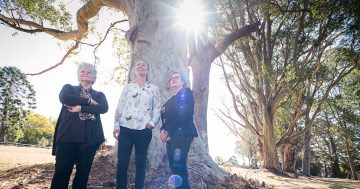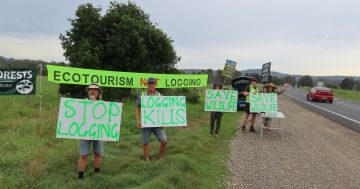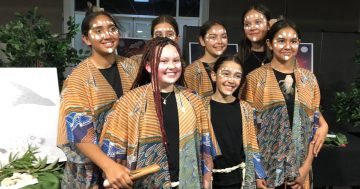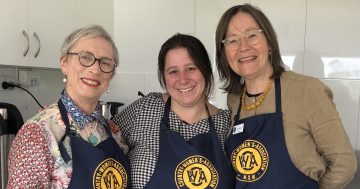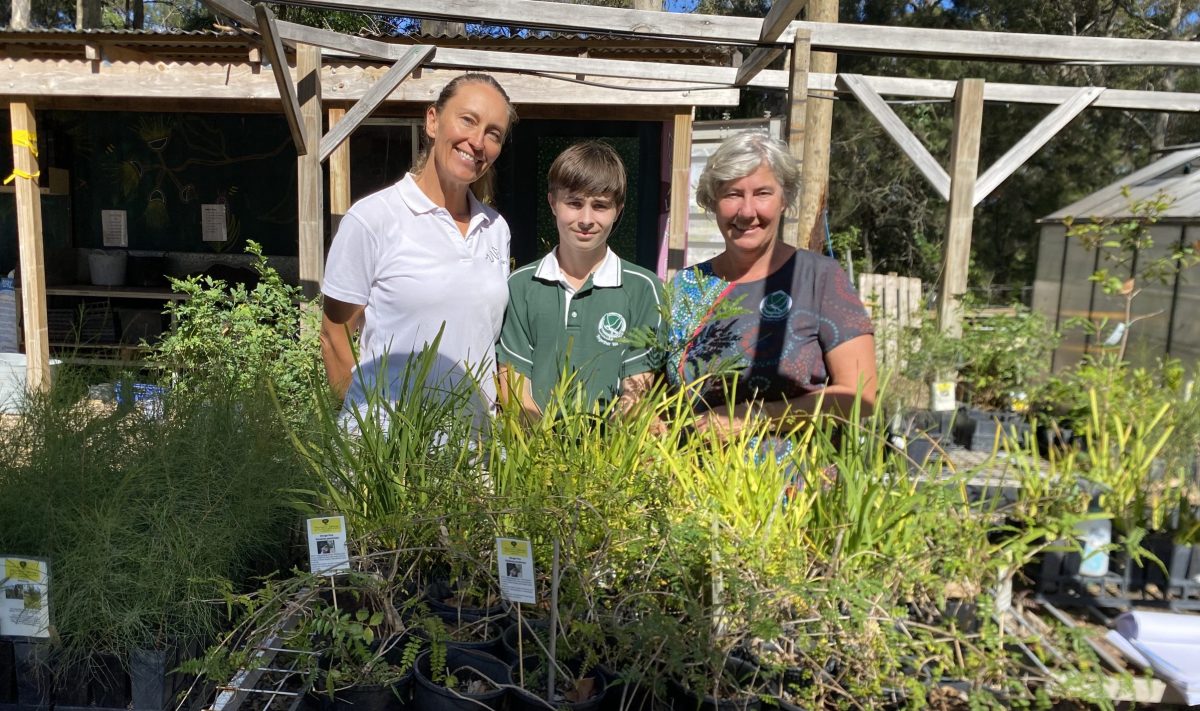
Walawaani Way owner Fiona McCuaig with Narooma High School student Charlie and science teacher Christina Potts. Photo: Marion Williams.
It was only 500 small native plants, but it was a huge milestone for Narooma High School’s native plant nursery.
It was also a big moment for natural conservation burial site Walawaani Way. Its founder, Fiona McCuaig, plans to return cleared farmland to native forest.
One of the six species of plants that Ms McCuaig picked up from Narooma High School last term was particularly special to her.
The seeds of Allocasuarina littoralis, or black she-oak, are a favourite of glossy black cockatoos. She hopes her 18-hectare property will eventually lead to a recovery in the population of the vulnerable species around the Bodalla area.
Walawaani Way officially opened for sales and tours in June 2024. It took Ms McCuaig nine and a half years to get all the necessary approvals for Australia’s first 100 per cent natural conservation burial site.
She is now working on the conservation project in earnest. Recently the Eurobodalla Koala Project approached Ms McCuaig to establish a corridor on the site for koalas. They planted 120 trees, species which provide food for koalas, and Ms McCuaig and her husband Ben Stainer are now caring for them.
Narooma High School’s journey with its garden is now in its seventh year. From humble beginnings as a vegetable garden, the school has added a potting shed, a substantial area to nurture the seedlings, and a greenhouse. Narooma High School science teacher Christina Potts said they had plans for further expansion.
In 2021 the school became involved in the Botanic Gardens of Sydney’s Youth Community Greening project. It was an outreach education program that assisted in establishing the native nursery. The nursery is now thriving.
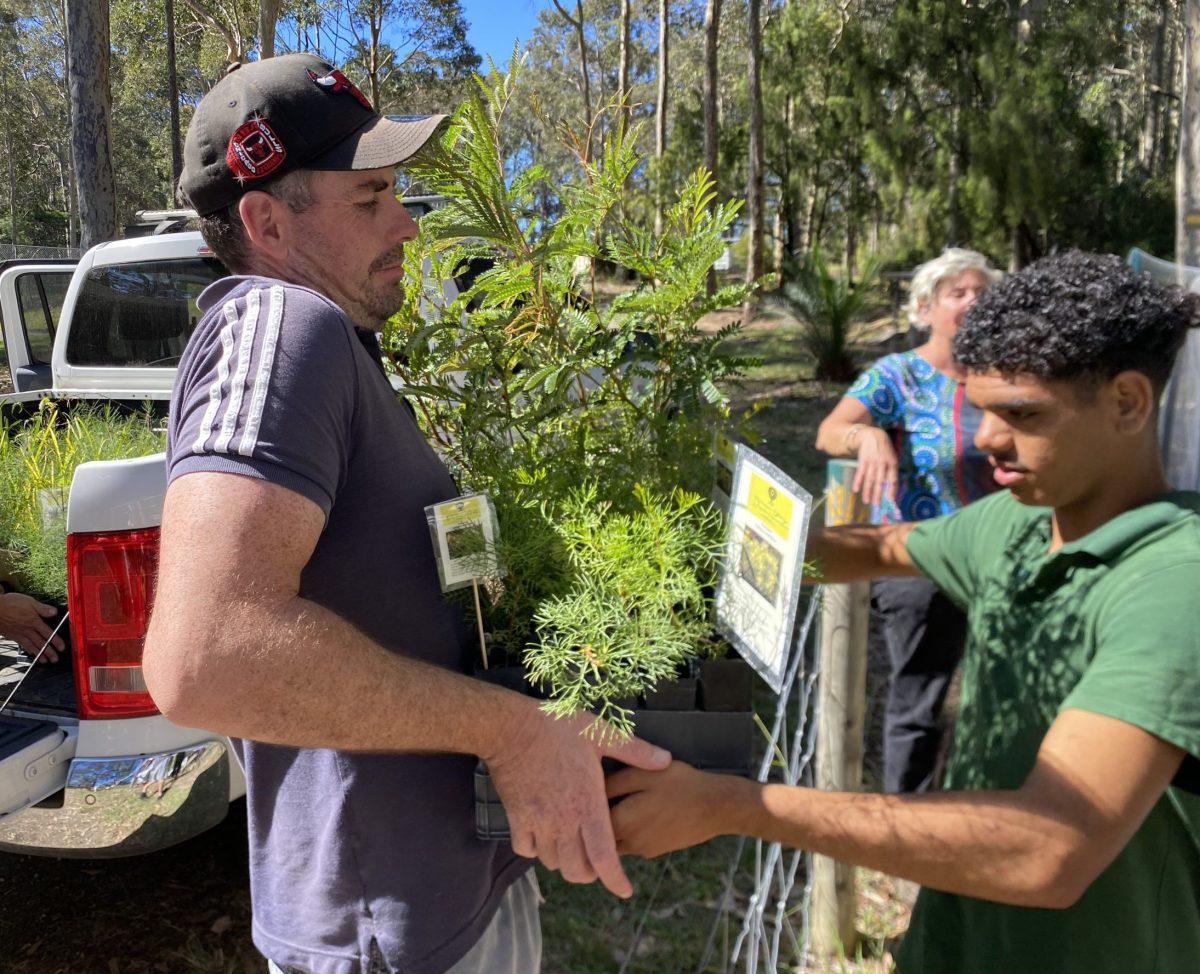
Todd Wright, learning support officer at Narooma High School, and student Joseph, loading plants onto the Walawaani Way truck. Photo: Fiona McCuaig.
The ongoing goal is to sell the plants and make money to reinvest in the nursery. A problem is how to sell the plants given the school grounds are not open to the public.
Serendipitously, Ms McCuaig heard about the school’s native nursery in 2023. She got in contact with Ms Potts and explained her plans to return her property to native forest and create habitat for the glossy black cockatoo. A unique collaboration was born.
“We grew the plants from scratch,” Ms Potts said.
She, students and other staff members collected seeds from around the school and from nearby Mystery Bay.
Ms Potts said it took a lot of work by the students propagating and watering over one to two years to get them to the size that Ms McCuaig could collect them.
The garden was originally created with support students in mind. It was a way to teach them science and maths and put it into practice in a calm outdoor environment.
Along the way they had advice from Merryn Carey of South Coast Flora in Dignams Creek. “Merryn has done seed collection and propagation workshops,” Ms Potts said.
Students will investigate a variety of plants and develop opportunities, such as making jam from fruit of native rainforest plum.
“It isn’t just selling plants,” Ms Potts said. “It is led by what the students want to do.”
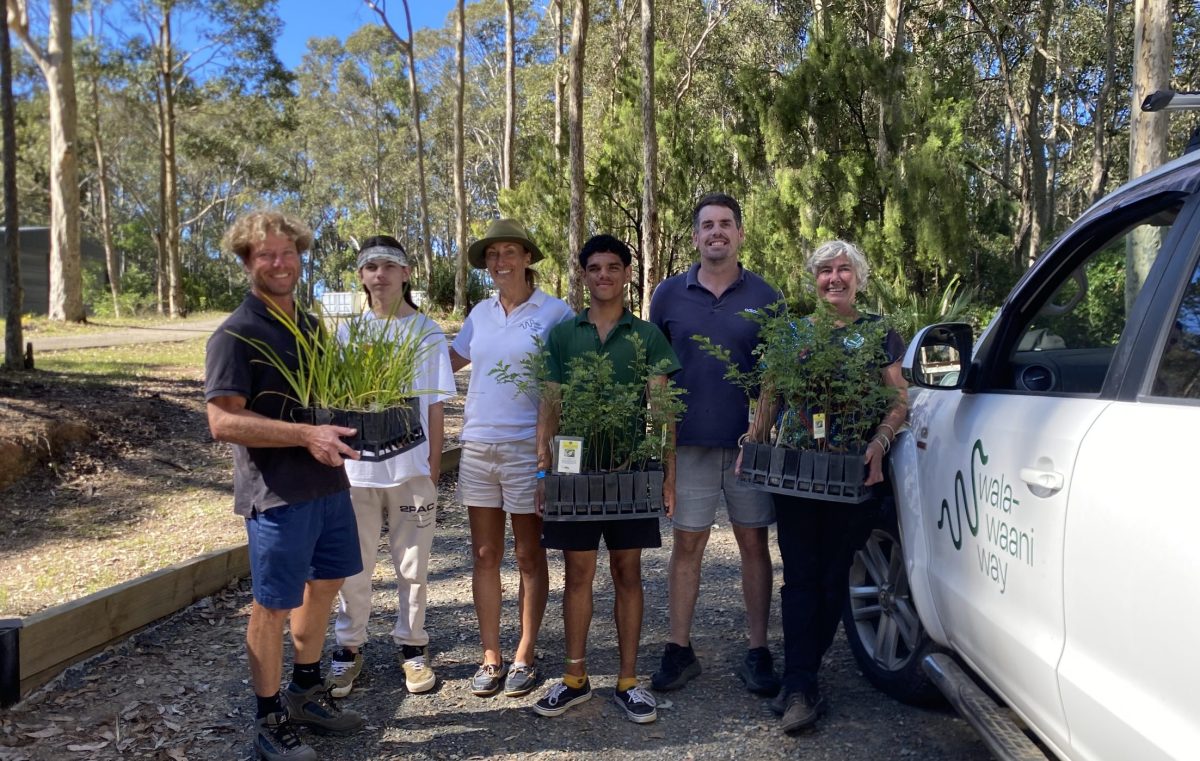
Fiona McCuaig of Walawaani Way (third from left) with staff and students from Narooma High School. Photo: Marion Williams.
The school took some of the plants to the Giiyong Festival where Clarence Slockee of Gardening Australia was giving talks and workshops. That resulted in some sales. They will also be selling plants at the Narooma Oyster Festival on 3 May.
The nursery classes are set to expand to the broader student population.
“We are starting a new hands-on class every week with Years 9 and 10,” Ms Potts said. “We will be working with local cultural knowledge holders to learn to go out on Country and do it the right way, bring in family members and do some cooking projects.”
The nursery acts as a simulated work environment where students learn about all aspects of how to run the nursery as a business. Students will gain an understanding of possible career opportunities.
They will also go out to work on gardening projects in the community.
“They are a crew for hire.”
Ms McCuaig is full of ideas for Walawaani Way too, such as coffin weaving workshops.
“People want to be part of changing the status quo in the industry,” Ms McCuaig said. “There is a lot of activity now because there hasn’t been much disruption.”
The proceeds of the $1500 sale of plants to Walawaani Way will be used to transport students to work on gardening projects in the community, as well as to expand the nursery.








